'A lot of people felt like the trip was a dangerous one, and I never saw it as dangerous, I thought it was fairly safe' — Rebecca Lowe on her solo bike journey from England to Iran
The author of The Slow Road To Tehran talks Middle Eastern hospitality, running out of water, and her newfound love of British weather
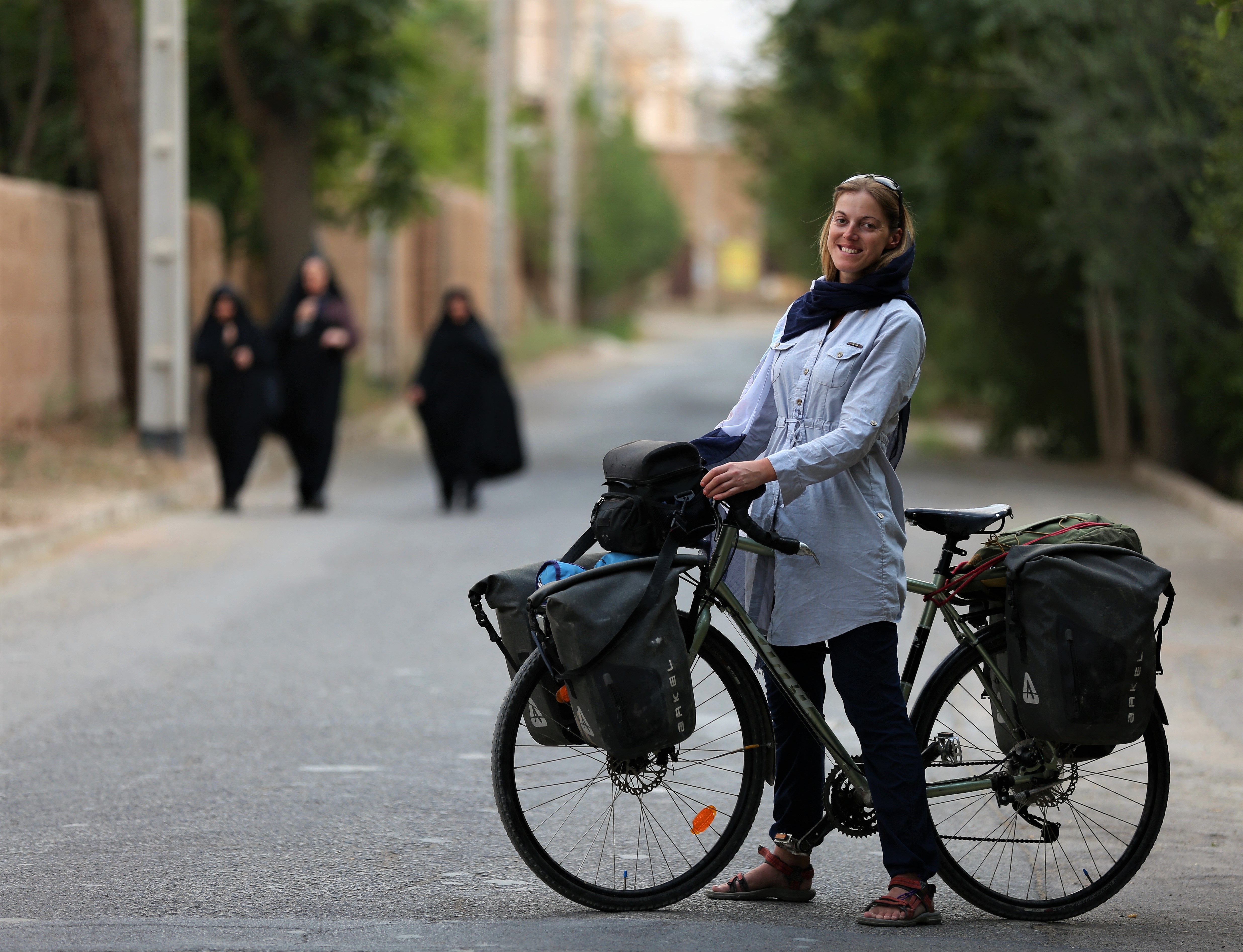

You would think if you were setting out on an 11,000 kilometre bike ride from the United Kingdom to Iran, you would consider yourself a cyclist, and that you would possibly prepare thoroughly for the ordeal.
Not so Rebecca Lowe. The journalist and author set out on the epic trip in 2015, despite only really using her bike to get to work, never having used a touring bike before, and with a packing list that included real books, a ukulele, and an inflatable chair.
Six years on from her adventure, and Lowe is talking to Cycling Weekly about her book The Slow Road to Tehran: A Revelatory Bike Ride through Europe and the Middle East. It chronicles her journey through Europe and then Turkey, Lebanon, Jordan, Egypt, Sudan, the UAE and Oman, and Iran. On her own.
"I do love cycling," she explains. "Maybe love is a strong word, but I really enjoy cycling. I've always cycled quite a lot, but more in a kind of pragmatic way. I hadn't done huge long trips, but I've always commuted, I always cycled to work and back. I've sort of cycled quite a bit, but I've never been a cycling fanatic at all. I've never been a tour cyclist.
"I do say at the beginning of the book that I'm not a cyclist, you know, I'm somebody who cycles. It really isn't about that, the bike was really a means to an end. I think a bike is just a wonderful way to see places. "
It is true that by bike, she was able to traverse a whole continent and a half in a way that would have been a little more boring by car, plane or train.
"I think being on a bicycle for a start was seen as less threatening," Lowe says. "If you're a woman on a bicycle, that's a whole kind of lesser threat, as well. When you're looking sort of sad and dishevelled, as I was, people just wanted to be nice to me really.
Get The Leadout Newsletter
The latest race content, interviews, features, reviews and expert buying guides, direct to your inbox!
"I had a newfound respect for cyclists as well because cycling is tough, and I was going very slowly. I really didn't know what I was doing. I didn't leave enough time to plan, I only left my job three weeks before and it was really hectic like those weeks. I ended up only packing the night before. The bike only arrived the day before. I'd never cycled the tour bike, I'd never cycled with panniers."
The author also comes out of the experience incredibly bored of punctures, which seemed to dog her throughout the trip, especially after getting some new tyres - allegedly the best in all of Beirut - halfway through.
"I really didn't know what I was doing"
The book is a fascinating ride through entire cultures, with the diversity and vibrancy of south-east Europe and the Middle East fully on show. What strikes the reader more than anything else, however, is the hospitality of the people of almost every place Lowe cycles through.
"I was treated in a way that I feel we would never have reciprocated had the reverse been true," she says. "If someone from like Iran or Sudan or Egypt passes by our village, how many people would invite them in to stay the night in their house? Iran was just amazing. It was like a whole new level of hospitality. I didn't stay in one hotel or camp once in Iran, I just didn't need to.
"All I needed to do was to turn up anywhere looking a little bit tired and hungry, which was a look I perfected by this point wasn't hard, and suddenly like there are blocks and people inviting me in for lamb stew and to their house."
All of us all-too used to the experienced of cycling in the UK and the USA can only dream of such a welcome wherever we go. Imagine!
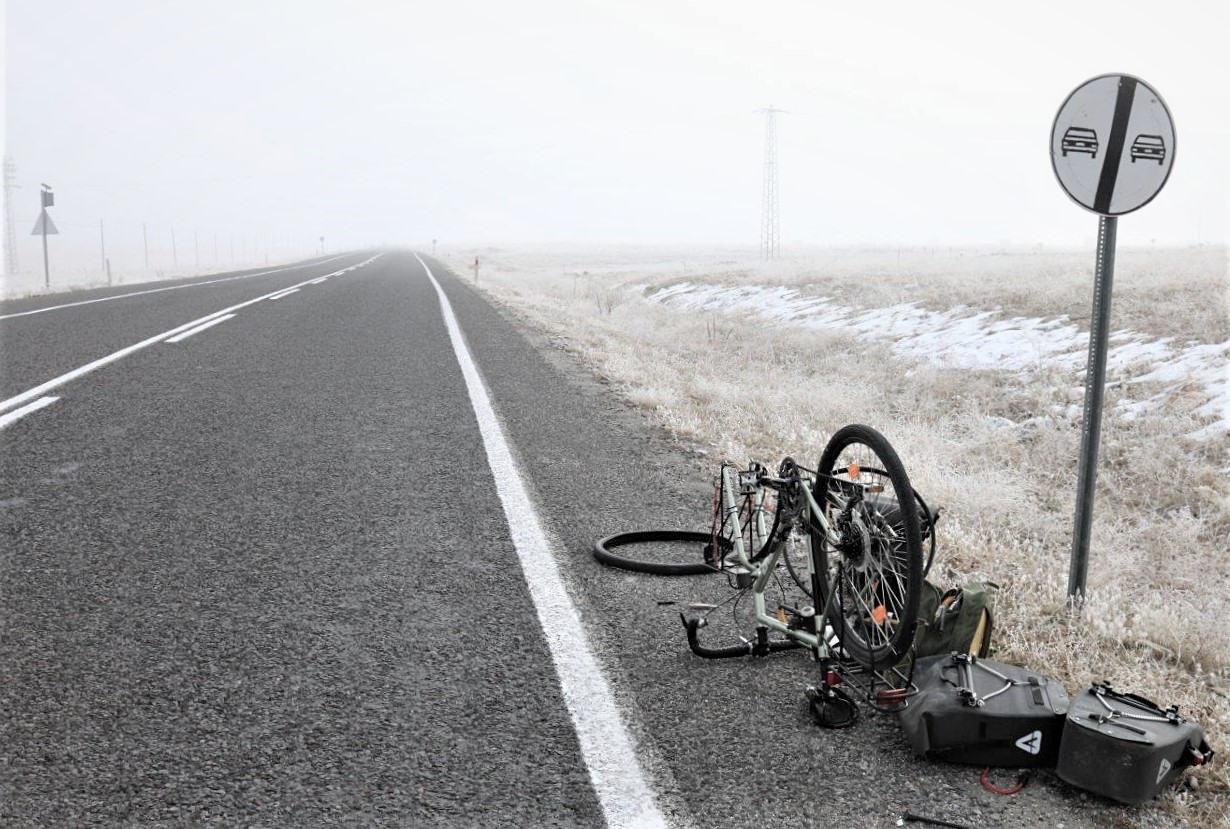
There are a few sketchy moments in her epic journey, although the biggest one possibly comes from a mistake Lowe makes herself, rather than from interference from others. It came in Sudan.
"It was probably one of the low points and it was really of my own making," she explains. "A lot of people felt like the trip was a dangerous trip, and I never saw it as a dangerous trip, I thought it was really fairly safe, much safer than for example, going down through South America or even going through North America actually. Whereas there's not so much crime in the Middle East, it was very hospitable. I actually never saw it as a particularly dangerous trip.
"The biggest danger was really I think, myself. In Sudan, I just made a terrible error of judgement when I had crossed over from one side of the Nile to the other. On the side I had been on, there'd be lots of these rest stops where you can stop and buy water. They also had like, lots of these big earthenware jars where with bamboo the water was shadowed.
"I crossed to the other side to find, like these, these old ruins, then ended up staying the night in some random place in the middle of nowhere. I can't even remember how that came about. Then the road I ended up on was a really quiet road, with no rest stops at all."
"It was just a little bit of a reminder of just how powerful the desert really is"
"I didn't take enough water with me, because I just expected that I would find somewhere," Lowe continues. "I even turned down some water, because they offered me some local water and I had to separate all through my filter straw, but it takes forever to get it out. It's just a bit of a hassle. That day, it was viciously hot. Someone called it a heatwave, which amused me because it's the Sahara. I really struggled. And I ended up kind of collapsing as I got to this town eventually.
"I was really in quite a bad way, I sort of slept by the side of the road. I was exhausted, and got to the point where I was almost getting a bit delirious and really weak. I managed to get to this town and then I kind of slipped on the bike and kind of fell off my bike. Then there were all these people there who were really kind to me and picked me up, dusted me down and gave me water and then took me to their house. I had a really good sleep.
"I felt fine the next day, but it was just a little bit of a reminder of just how powerful the desert really is. I hadn't really given in the respect that it was due and I think it was really putting me in my place."
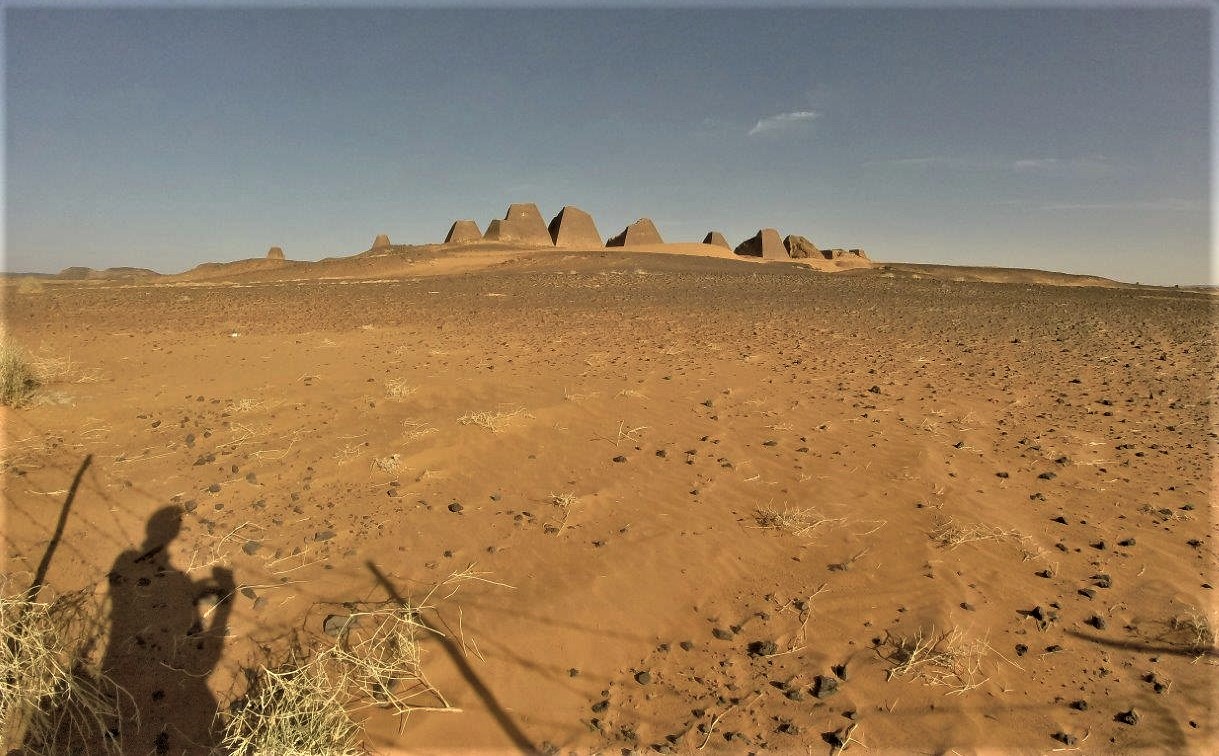
Aside from the dehydration episode, Sudan was one of the highlights of the trip, especially as it came after Egypt, one of the lowlights. The latter country comes across as a police-state, with Lowe being trailed by police throughout her lonely cycle.
"Sudan was such a fascinating place," she says. "Partly I think because I came from Egypt and Egypt was just so hectic. It was kind of overwhelming and busy. Passing from Egypt to Sudan, it just suddenly felt like I could breathe again. Miles and miles of nothingness. Even though it was getting very, very hot as I was going down through the Sahara, I managed to time it exactly wrong.
"I intended originally to try and get through the Sahara before the heat of the spring. But because I've been so slow getting to that point, I managed to get there just at the peak of the heat. It was really hot, but it was also kind of really kind of relaxing and meditative as well, because it was just these mud huts, t's very empty in northern Sudan.
"The villages are very small, they're not very developed. And the people are very welcoming and friendly. So that was really lovely, actually, going down through Sudan and they've got incredible history in Sudan. Just extraordinary. I think that one day, you know, hopefully, once Sudan has got onto its path of democracy, then they'll actually start kind of really looking after this heritage a bit better, because at the moment, a lot of it is just neglected and buried underground."
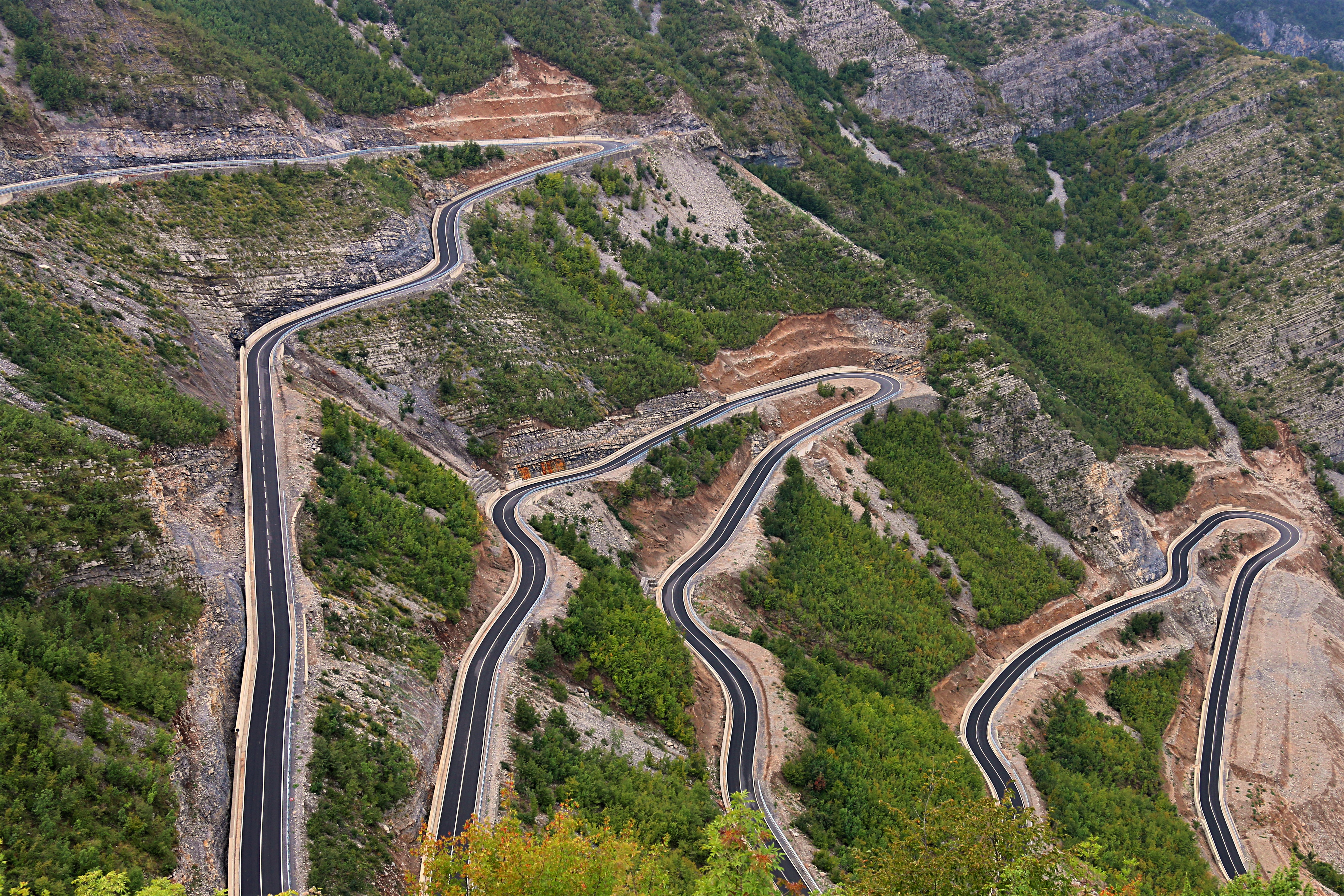
Despite being on her own for months, Lowe did not feel particularly endangered by being a lone woman, confounding my expectations. There were times where she was harassed - one moment in Egypt springs to mind - but most of the time, she was treated cordially.
"As a woman, you always do take a few more precautions," she explains. "I would try and be as careful as I could I tended to avoid cycling at night, I had a rape alarm on my belt, although that actually fell off my belt into the toilet in Turkey. I didn't tell my mum about that.
"I had this satellite tracker, which just tracks on a map on my website. You can see little dots, which was actually the satellite tracker tracking my movements, and it had an emergency button on it. That sent a text to my partner and my mum, if I got into trouble, and I actually pressed it quite early in the trip, and nothing happened. Then I was speaking to my partner later, and I said did you get that urgent text that I sent earlier. He was like: ‘oh, yeah, sorry. I just thought it was an accident.’
"I had a rape alarm on my belt, although that actually fell off my belt into the toilet in Turkey. I didn't tell my mum about that."
"I don't know quite how useful the precautions were. I hitchhiked a little bit. That got me into trouble on one occasion, but I tried to avoid that. That was just when it was unavoidable.
"I want to say I what I think about travelling as a woman and certainly in the Middle East is that actually there are lots of pros to it. Which I think counters the negatives, which is that people tend to want to look after you a little bit more when you're a woman. Partly because if you're going to be somewhere that has a slightly chauvinistic culture, there's a sense of protecting women.
"That can be beneficial in a way, because they see you as kind of a slightly weak, vulnerable person, so they want to make sure that you're okay."
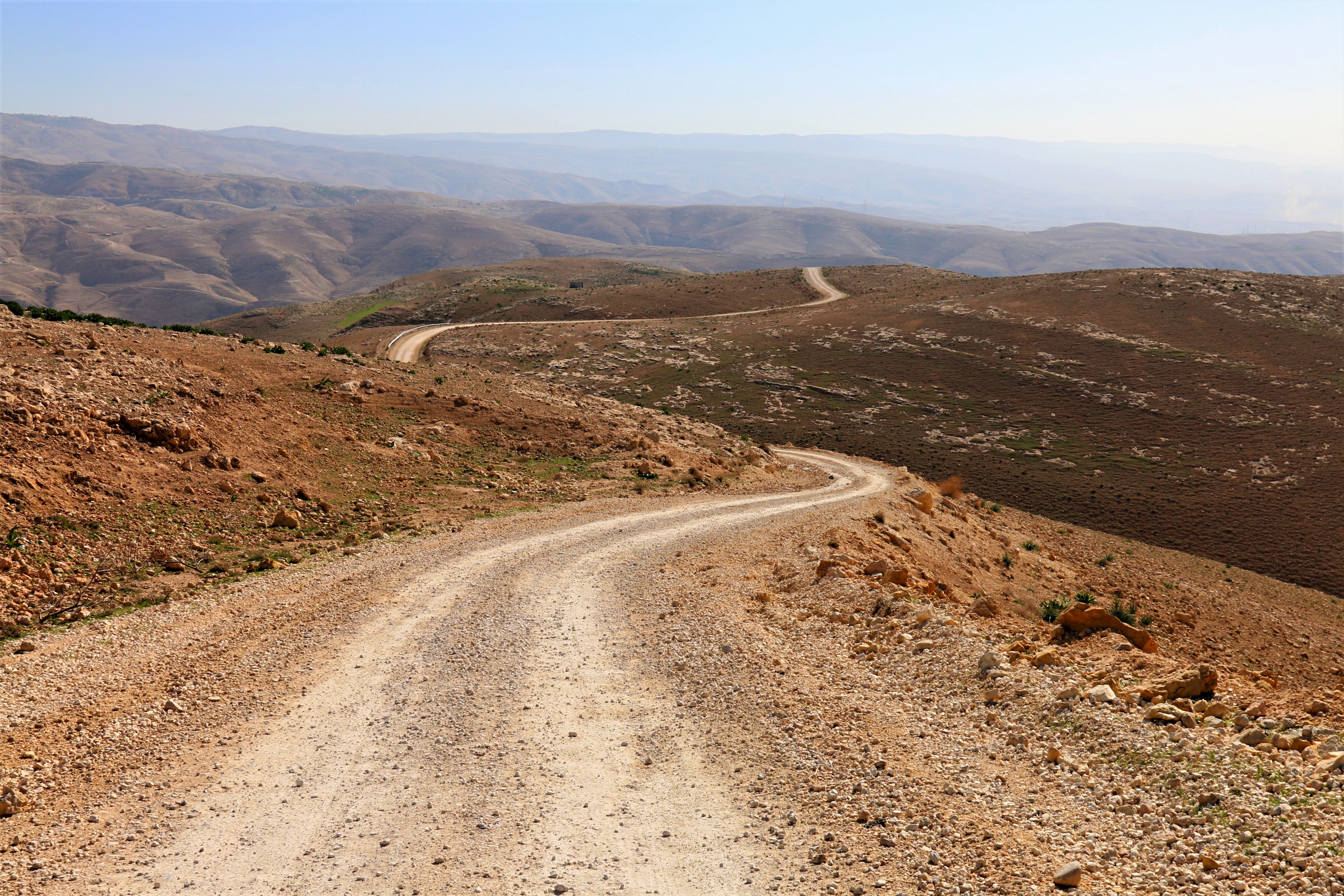
One of my favourite parts of the book comes reasonably early on in the journey, when in the small village of Ovacik, Turkey, Lowe is greeted by the news that she is the first foreign cyclist to pass through since 1997, and is treated a little like a hero.
"They were a bit disappointed," she tells Cycling Weekly They were really excited for like five minutes. They gave me a kebab, which was amazing. That was a great moment, actually, because I was desperate to find somewhere to sleep. And there was just nowhere really, it was really cold and frosty. I didn't want to have to camp. I went into this place that was just dead. It was like a ghost town.
"No one seemed to live there. I finally found the entire population, the entire male population of the village in this one little cafe that wasn't even a cafe. It was just like a whitewashed hut. I just walked into this silence. All these men with a kind of shock and slight horror, at this woman infiltrating this testosterone-fuelled environment. Then they were very friendly. Once they got over that shock, the mayor arrived. And then they were all very excited."
In the book, she writes: "For the next two hours, I am seated like a chatelaine on the sofa while streams of neighbours drop by to examine this strange, zeppelin-thighed creature rescued like a stray from the snow."
"I came back with this renewed appreciation for British weather. I love British weather now, because I was so sick of the heat. "
Iran is the biggest surprise, however, far from the country that we are often led to believe by the media. The people are welcoming, so friendly, and Lowe meets many people who are anti-regime, but just as many who are for it.
"I ask their view of Britain and am interested to hear that they distinguish between the British people, whom they 'love', and the British government, which they deplore," she writes. "A distinction that we Brits, I feel, often overlook in our judgement of those from abroad."
There is probably a lesson to be had there.
For Lowe, after 8,000 miles, she had a positive view of human nature, which is warming to hear.
"I think I sort of knew, rationally before I did the trip, that most people are kind of fundamentally decent and kind," she explains. "But I didn't really know it viscerally, I hadn't really experienced it. So I came out of it with a kind of renewed sense of faith in the human spirit."
Returning from her odyssey must have been hard, but there was at least one positive: "I came back with this renewed appreciation for British weather. I love British weather now, because I was so sick of the heat."
For all cycling enthusiasts, those interested in the culture and history of the Middle East, or just those impressed by feats of endurance, Lowe's tale is a must-read.
The Slow Road to Tehran: A Revelatory Bike Ride through Europe and the Middle East by Rebecca Lowe, September Publishing, £18.99, 416 pages.

Thank you for reading 20 articles this month* Join now for unlimited access
Enjoy your first month for just £1 / $1 / €1
*Read 5 free articles per month without a subscription

Join now for unlimited access
Try first month for just £1 / $1 / €1

Adam is Cycling Weekly’s news editor – his greatest love is road racing but as long as he is cycling, he's happy. Before joining CW in 2021 he spent two years writing for Procycling. He's usually out and about on the roads of Bristol and its surrounds.
Before cycling took over his professional life, he covered ecclesiastical matters at the world’s largest Anglican newspaper and politics at Business Insider. Don't ask how that is related to riding bikes.
-
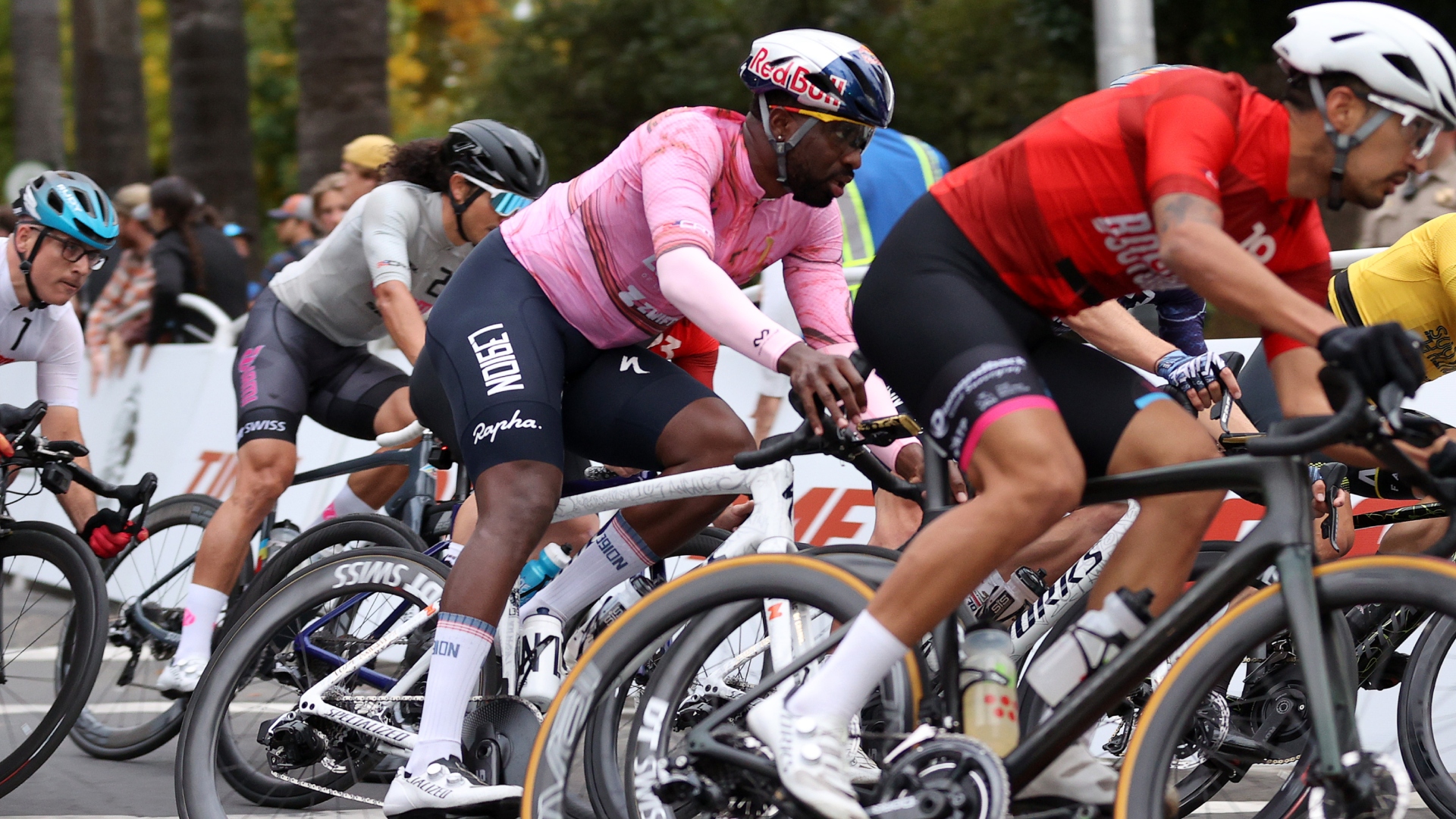 Can you make a living as an American domestic road racer? A look inside the part-time professionalism of the American road peloton
Can you make a living as an American domestic road racer? A look inside the part-time professionalism of the American road pelotonAfter decades of booms and busts, the American road scene finds itself in a fragile place. We spoke to riders to understand the reality of chasing the dream on home soil
By Logan Jones-Wilkins
-
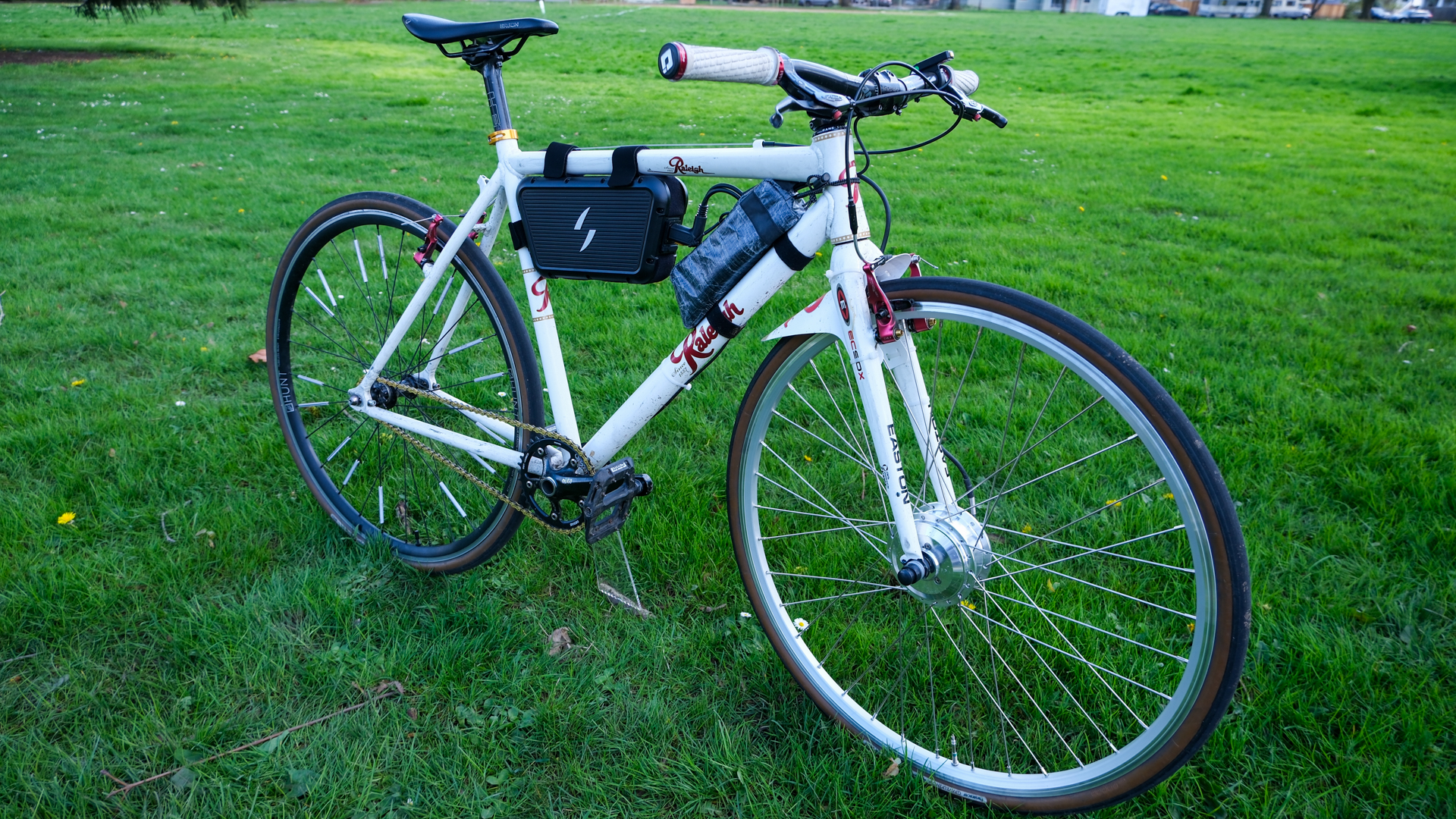 5 things I wish I’d known before reviewing the Swytch GO e-bike conversion kit
5 things I wish I’d known before reviewing the Swytch GO e-bike conversion kitSwytch offers an effective, albeit untidy, workaround for e–bike–curious riders. But as prices drop on full e-bikes, its value proposition may be fading
By Anne-Marije Rook